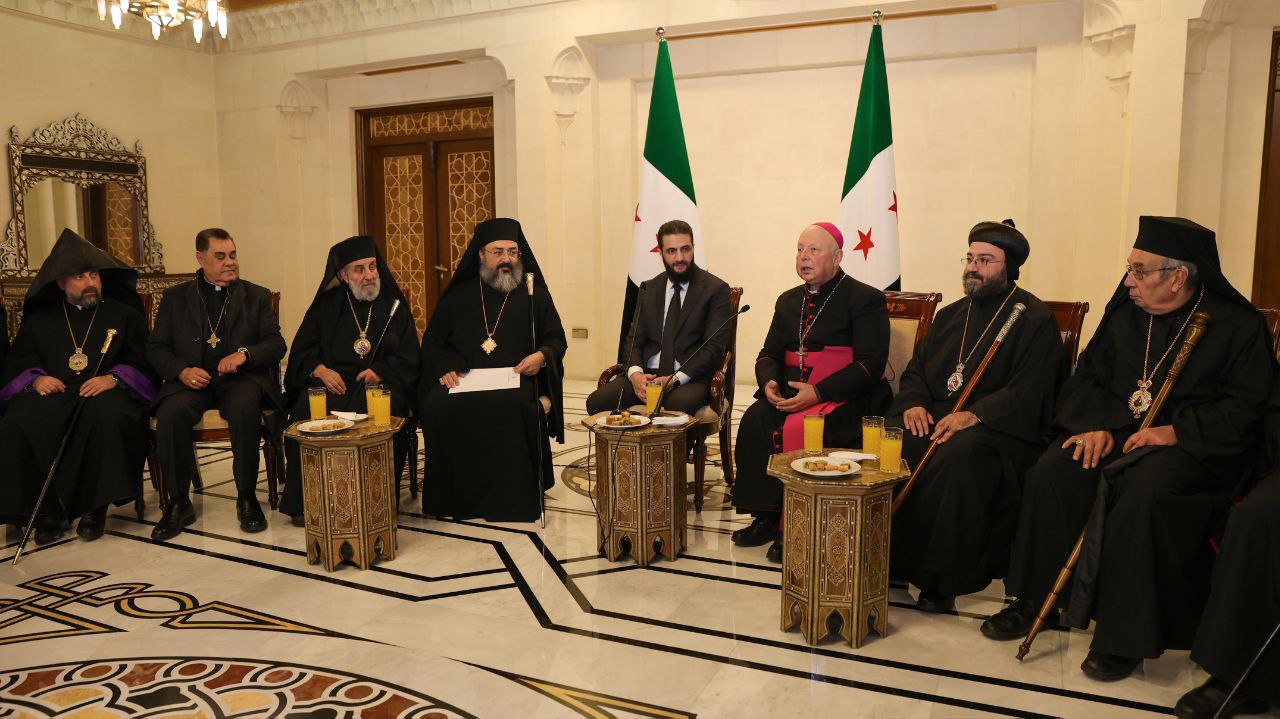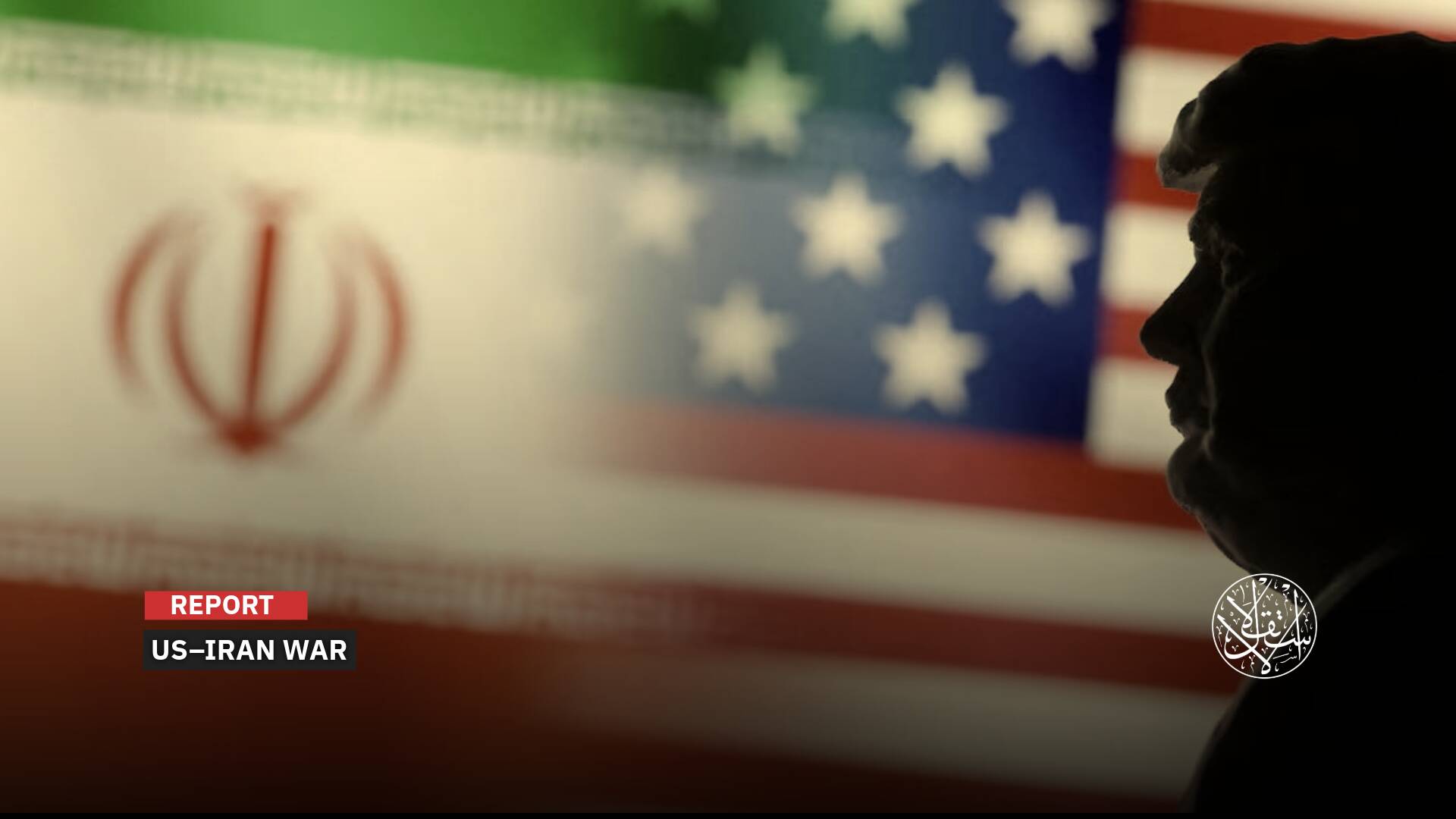How France Is Trying to Create a Foothold in the New Syria

“Paris is due to host an international summit on Syria later this month.”
France has a special relationship with Syria, represented by the 26-year colonial era (1920-1946) that left its deep impact on the state structures.
After the fall of the Ottoman Empire, France and Britain occupied the region, as their argument for imposing guardianship and mandate was to protect minorities.
At that time, France divided Syria into several states, drawing the borders of the State of Damascus, declaring the State of Aleppo and the Alawite State, then the Druze State, and later separating the Sanjak of Alexandretta from Aleppo.
The Syrians fought these divisions at the time, and succeeded after the 1936 strike and negotiations with the French government, as the Alawite and Druze states were re-annexed to the Syrian Republic, and the representatives of the two states gave up federal privileges to achieve equality among all Syrians.
When the rule of Syrian President Bashar al-Assad was shaken in 2012, the entire Western media talked about the fate of minorities there. The BBC raised the international community's fears of a civil war if the Assad regime fell at that time.
Today, following the fall of the Assad regime, France is rushing back to Syria to raise the same argument it had relied on in the 1920s.
Although French secularism is defined as a separation of religion from state, Paris itself is demanding that the transitional Syrian government include religious minorities in the new form of authority.
French Argument
France once claimed and justified its occupation of Syria about a century ago by protecting minorities, so Fares al-Khoury went to the pulpit of the Umayyad Mosque in Damascus and said: “If France claims that it occupied Syria to protect us Christians from the Muslims, then I, as a Christian, from here I bear witness that there is no god but God.”
After that, worshipers approached him and carried him on their shoulders, in a demonstration that toured the neighborhoods of the Syrian capital, Damascus, in which Christians participated, chanting: “There is no god but God.”
At that time, al-Khoury did not mean that he would change his religion, but rather that he rejected France's colonial policies that aimed to divide Syrians on religious and ethnic grounds, with the intention of creating arguments for colonizing it.
Today, the same argument is repeated and Western countries, including France, maintain sanctions on Syrians under the argument of their fear for minorities from the Muslim majority, but this time al-Khoury is no longer alive.
On January 3, French Foreign Minister Jean-Noel Barrot, during his meeting with Christian figures during his first visit to the capital Damascus after the fall of the Assad regime, stressed Paris's determination to stand by representatives of civil society and minorities in Syria.
However, one of the Syrian Christian citizens may have remembered what Fares al-Khoury had done earlier, and sent a message to the French minister, saying: “As a Christian, I don't care if someone comes to defend me and I see others being wronged,” stressing that he wants protection for all Syrians at the same time.
He added: “We need to be together as Syrian brothers, and live for each other,” noting the importance of what he called the battle of awareness for all Syrians in the coming period.
This talk comes amid successive Western statements on the need to protect the rights of minorities in Syria after the armed opposition took over.
Syrian activist Lina Ksseibi said in a post on X: “Stop using minority rights as an argument for inaction. The majority has suffered long enough. Minorities are an integral part of Syria; they have always been and always will be.”
In a Facebook post, Syrian activist Tamara al-Rifai called on Christians in Syria to pressure their religious leaders to confirm to France that in the new Syria, basic human rights must be respected for all Syrians regardless of their religious backgrounds.
Civil Rights
In a direct message about the role that Paris wants to play in Syria in the coming period, its foreign minister began his tour in Syria a few days ago by visiting the headquarters of the Antiochian Patriarchate of the Greek Orthodox in Damascus.
He called for an inclusive political transition in Syria that guarantees the rights of the country's diverse communities, adding that Paris will provide technical and legal assistance to draft a new constitution for the country.
He also called on the new administration in Syria to reach a political solution with the SDF, saying that a political solution must be found with France's allies, who are the Kurds, so that they can be fully integrated into the political process that is currently underway.
Diplomatic sources said Barrot told the Christian leaders that France was committed to a pluralistic Syria with equal rights for all, including minority groups.
Paris is due to host an international summit on Syria later this month, following a similar meeting in December in Jordan.
On his part, Syrian journalist Nedal al-Amari noted in a post on X that this French obsessive fixation on defending minority rights is patronizing, colonial, condescending, and narrow-minded.
Activist Israa Hazel denounced the colonial French behavior, saying: “The beacons of secularism in France who apply the harshest measures on veiled Muslim women (minority) make a point of firstly visiting Christians in their first trip to Syria.”
French statements regarding the role of minorities in the new Syria, and the protection of Christians in particular, have raised questions among many Syrians about the reasons for the absence of any government representation for the Muslim minority in France, especially since the number of Muslims in France exceeds 6 million Muslims.
The irony is that France, whose system does not impose a quota system that guarantees the participation of its Muslims in government, wants to impose this in Syria.
In addition, its president, Emmanuel Macron - who persecutes Muslim women who wear the hijab in schools - speaks daily like other European rulers about guaranteeing the rights of minorities in Syria.
The Muslim minority in France, for example, does not have days off to celebrate Eid al-Fitr and Eid al-Adha, and does not enjoy any rights that distinguish them as Muslims, while Catholic religious holidays are respected as the majority in the country and are suspended.
As for the rest of the civil rights, there is a general law that includes all French people, without any consideration for religion, race, or anything other than citizenship. Why doesn't France implement on its territory what it wants outside its borders, Syrians ask.
France wants to grant religious minorities an administrative right or something special in the new Syria, while obstructing the establishment of the rules of democracy that it follows on its territory, i.e. equality in rights and duties according to competence and not according to race or religion.
France, which brags about democracy, is trying to obstruct the establishment of a Syrian state for all Syrians without discrimination, by focusing on a minority that does not exceed 3% of the Syrian population and maintaining its sanctions on the entire Syrian people, while it crushes the identity of minorities on its territory, some of which now constitute more than 10% of the population.

Colonial Behavior
In turn, political analyst Ibrahim Khatib told Al-Estiklal that the recent French statements indicate that Paris is trying to compensate for its losses in decision-making in the Middle East, especially in Lebanon, by creating a foothold in Syria.
He also pointed out that the visit of the French foreign minister to Christian leaders in Damascus before meeting with the leader of the new Syrian administration is a clear contradiction with the principles of secularism, equality and citizenship.
Mr. Khatib believed that France's colonial behavior indicates that it does not want a real popular representation for those who rule Syria, but rather seeks to impose a weak quota system of government, similar to the system of Bosnia and Herzegovina and Lebanon, or a sectarian system of government similar to Iraq.
On his part, Lebanese journalist Moussa Assi confirmed via a post on X that France, which is currently seeking to build relations with Syria, does not care at all about the rights of minorities, as it declares and claims, noting that all it cares about are interests and deals.
He also pointed out that during the first years of ISIS rule in some areas of Syria, the French cement company Lafarge, which was headquartered in those areas, cooperated and paid tens of millions of dollars to the terrorist organization in exchange for continuing its activities within the areas under its control.
Since the fall of the Assad regime on December 8, minorities have been cautiously monitoring the signs of the new reality in Syria, noting that the leader of the new Syrian administration, Ahmed al-Sharaa, has sent many messages to reassure minorities.
Al-Sharaa has pledged several times to the various sects in Syria that they will be safe, and he also told Western officials who visited Syria that the new administration will not take revenge or suppress any religious minority, according to Reuters.
It is noteworthy that al-Sharaa held a meeting a few days ago with a delegation from the Christian community in the city of Damascus, where he congratulated Christians in Syria on the occasion of the New Year, and stressed that they are an essential part of the fabric of Syrian society.

Al-Sharaa also stressed, during his meeting with a delegation of members of the Druze sect last month, the importance of the presence of the state mentality instead of the opposition mentality, and the existence of a social contract between the state and all sects to ensure social justice.
He also stressed the need for Syria to remain united and for there to be no quotas or privacy that would lead to separation.
On December 25, thousands protested in several areas of Syria after a video circulated showing an attack on an Alawite shrine in the country's north.
A day earlier, hundreds of demonstrators took to the streets in Christian areas of Damascus to protest the burning of a Christmas tree near Hama in central Syria.










